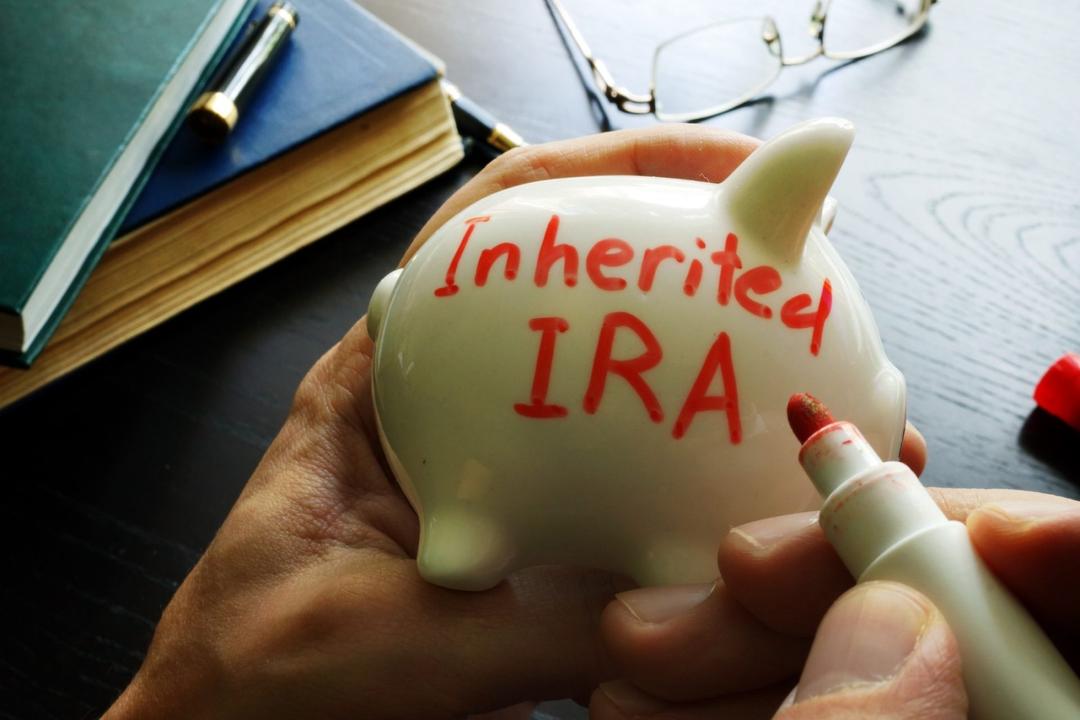
When a loved one or relative passes away, they may leave behind an inherited IRA. As the beneficiary, you may be the recipient of either an inherited Roth IRA or an inherited traditional IRA.
Different timelines can affect beneficiaries. Beneficiaries also have rules for handling an inherited Roth IRA or an inherited traditional IRA. Here are the tax options available to recipients of inherited IRAs.
What Is an Inherited IRA?
An inherited IRA is a retirement account that an inheritor receives when someone passes away. Depending on your relationship with the original IRA owner, you may treat their IRA as your own, or you can be the beneficiary of an IRA.
Beneficiaries can open inherited IRAs from any IRA type. Still, as the recipient of an inherited IRA, you’ll have regulations regarding how to transfer funds and how you can use it.
How Does an Inherited IRA Work?
An inherited IRA allows a beneficiary to operate an IRA as their own, or to transfer IRA funds.
As a beneficiary, you won’t be able to make additional contributions to an inherited IRA. Instead, assets from an inherited IRA must be transferred from the original owner to the beneficiary. This transfer is a requirement, even if the distribution amount is in a lump sum.
To report earnings from an inherited IRA, you’ll report it and its distributions using IRS Form 1099-R and IRS Form 5498.
Who Can Be a Beneficiary of an Inherited IRA?
Anyone can be the beneficiary of an inherited IRA. Entities, relatives, spouses, and unrelated parties all qualify to be inherited IRA beneficiaries.
There are two categories of people who can receive an inherited IRA: spouses and non-spouses. Within the non-spouse beneficiaries, there are also two classifications, which include designated beneficiaries and eligible designated beneficiaries.
Designated beneficiaries are those who don’t meet any exemption requirements. Eligible designated beneficiaries comprise those who are:
- Chronically ill
- Less than 10 years younger than the original account owner
- Minor children (the 10-year rule will begin at age 18)
- Permanently disabled
- Surviving spouse
Eligible designated beneficiaries can avoid the 10-year rule enforced by the SECURE Act. These beneficiaries can also stretch distributions over their lifetime, within 10 years if desired, or take a lump-sum withdrawal.
Inherited IRA Rules
There are two ways an inherited IRA can affect inheritors. Inherited IRA rules for withdrawal differ whether you use an inherited Roth IRA or an inherited traditional IRA. The rules also vary whether the beneficiary is a non-spouse or a spouse.
Inherited Roth IRA
There are two rules which determine how you can use an inherited Roth IRA. Your relationship to the original IRA owner will determine how you’ll use inherited Roth IRA funds.
If you’re the recipient of an inherited Roth IRA as the former spouse and sole beneficiary, three options are available to you:
- Roll the inherited Roth IRA over into your own Roth IRA.
- Continue its growth as your retirement account.
- Select the life-expectancy method as the surviving spouse. By choosing this method, you’ll spread monthly distributions over your life expectancy. The funds will grow tax-free.
If you’re a non-spouse beneficiary and a recipient of an inherited Roth IRA, the rules may vary. It depends on if you’re a designated beneficiary or an eligible designated beneficiary.
Non-spouse beneficiaries will need to cash out their inherited Roth IRA account within ten years of when the original Roth IRA owner died. There are exceptions to this, which are people considered eligible designated beneficiaries.
Inherited Traditional IRA
If you’re the recipient of an inherited traditional IRA, the exact rules you’ll follow will depend on your relationship with your relative or spouse.
As the surviving spouse, you have three options to use your inherited IRA. You can treat it as:
- Your own IRA by designating yourself as the account owner.
- Your own by rolling it over into a traditional IRA, or the extent it’s taxable, into a qualified employer plan, qualified employee annuity plan, tax-sheltered annuity plan, or deferred compensation plan of a state or local government.
- Treat yourself as the beneficiary rather than treating the IRA as your own.
You’ll have 60 days to roll over your inherited IRA after receiving a distribution. The only exception to this is if the distribution isn’t a required minimum distribution. The final rules for inherited traditional IRAs are with required minimum distributions:
- If your spouse received the required minimum distributions prior to their death, you’ll continue to receive distributions as calculated.
- You’ll have the option to submit a new schedule based on your own life expectancy.
- If the original owner didn’t make a required minimum distribution, you’ll have a five-year window to withdraw funds.
- Funds withdrawn from inherited traditional IRAs will be subject to income taxes.
As the beneficiary of an inherited IRA from someone other than your spouse, you’ll follow different rules. You won't be able to:
- Treat the inherited traditional IRA as your own.
- Make any contributions to the IRA.
- Roll over any amounts into or out of the inherited IRA.
Lessen Your Tax Burden as an Inherited IRA Tax Beneficiary
As the recipient of an inherited IRA, you may have tax implications. Your relationship with the original IRA owner plays a large part in how you can proceed with inherited IRA regulations and rules.
After receiving an inherited IRA, make sure you work with tax professionals to lessen your tax burden. Work with the tax professionals at 1-800Accountant if you’re a beneficiary of an inherited IRA.
This post is to be used for informational purposes only and does not constitute legal, business, or tax advice. Each person should consult his or her own attorney, business advisor, or tax advisor with respect to matters referenced in this post. 1-800Accountant assumes no liability for actions taken in reliance upon the information contained herein.
